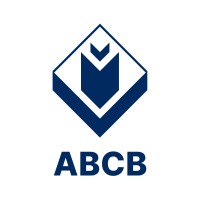Australian Building Codes Board
 | |
| Agency overview | |
|---|---|
| Formed | March 1, 1994 |
| Headquarters | 12/224 Bunda St, Canberra ACT 2600, Australia |
| Website | www |
The Australian Building Codes Board (ABCB) is a body that writes Australia's standardized building requirements, including the National Construction Code (NCC), WaterMark, and CodeMark. The ABCB is part of a joint endeavour by the Commonwealth, state and territory governments, and the country's plumbing and building industries.
The ABCB is "the authority responsible for building regulation in Australia".[1] NCC regulations are revised every three years, the most-recent revision being the NCC 2022.
Organisation
[edit]The Australian Building Codes Board (ABCB),[2][3][4] is a collective body formed in a partnership between the state, territorial, and national governments; and with representatives of the plumbing and building industries.[5][6][7] The ABCB was formed, by the three levels of government in an Inter-Government Agreement that was signed on 1 March 1994.[7][8] The ABCB has striven to reform the building regulations and the regulatory framework for building since the introduction of the Building Code of Australia (BCA), which is part of the National Construction Code (NCC).[6]
Since the beginning of the 1990s, the ABCB worked on the development of a universal building code for Australia. In the mid 1990s this was expanded to include performance-based codes. In 2011, ABCB publication "NCC" was expanded to incorporate codes for plumbing and construction.[6] By 2015, the ABCB planned to improve the NCC; these improvements included enhancing public online access to the NCC, measuring the NCC's performance, lessening the diverging regulations being applied in some states, and broadening the NCC to include an aggregation of building-site regulations to prevent overlaps in regulation.[9]
Until 2015, the ABCB regularly revised the BCA. After 2016, the revision period was extended to three years.[10] Until 2015, the ABCB was a standards-writing body of the Council of Australian Governments (COAG)[7] until Prime Minister Scott Morrison abolished COAG and replaced it with the National Cabinet.[citation needed] It is unclear if the current National Cabinet administers the ABCB.[citation needed]
Responsibilities
[edit]The ABCB is responsible for maintaining requirements which apply to the building and construction industry. These requirements include the National Construction Code (NCC), which consists of the Building Code of Australia,[11] the Plumbing Code of Australia, and the WaterMark and CodeMark Certification Schemes.[5]
National Construction Code
[edit]The NCC allows the ABCB to introduce minimum standards in the building and construction industry, such as energy efficiency standards.[12] The design of buildings built in Australia must satisfy the requirements imposed by the ABCB.[13] The ABCB accredits certifiers, both council and private, that have authority to certify the designs of buildings, and to deem them compliant.[3]
WaterMark
[edit]WaterMark is a mandatory certification scheme for some plumbing and drainage products. WaterMark applies nationally and is managed by the ABCB. The certificates of compliance of the products are issued by Conformity Assessment Bodies, which the ABCB accredits.[14]
CodeMark
[edit]CodeMark is a certification scheme for building products and systems in Australia and New Zealand the ABCB developed and administers. The ABCB and the New Zealand Department of Building and Housing maintain CodeMark to create confidence and determinability for regulatory bodies by issuing Certificates of Conformity.[15][16]
Other
[edit]The ABCB released Volume 1 of the NCC 2022 in May of 2022.[17]
References
[edit]Citations
[edit]- ^ Iyer-Raniga & Wong 2012, p. 138.
- ^ Lawania 2016, p. x.
- ^ a b Shih 2015, p. xv.
- ^ Bell et al. 2022, pp. 2, 6.
- ^ a b ABCB 2022.
- ^ a b c Shih 2015, p. 23.
- ^ a b c RAIA 2017.
- ^ Newhouse 2012, p. 1.
- ^ Shih 2015, pp. 23, 25.
- ^ Shih 2015, p. 127.
- ^ Palutikof et al. 2014, p. 425.
- ^ Lawania 2016, p. v.
- ^ Lawania 2016, p. 171.
- ^ "What is WaterMark? | WaterMark". watermark.abcb.gov.au. Retrieved 15 November 2022.
- ^ "CodeMark Certification Scheme | CodeMark". codemark.abcb.gov.au. Retrieved 15 November 2022.
- ^ JAS-ANZ (19 November 2014). "CodeMark". www.jas-anz.org. Retrieved 15 November 2022.
- ^ Rossi 2022.
Bibliography
[edit]- ABCB (2022). "Australian Building Codes Board". abcb.gov.au. Australian Building Codes Board. Retrieved 10 November 2022.
- Bell, Nichloas O.; Bilbao, Jose I.; Kay, Merelinde; Sproul, Alistair B. (2022). "Future climate scenarios and their impact on heating, ventilation and air-conditioning system design and performance for commercial buildings for 2050". Renewable and Sustainable Energy Reviews. 162: 112–363. Bibcode:2022RSERv.16212363B. doi:10.1016/j.rser.2022.112363. ISSN 1364-0321. S2CID 248159374 – via ScienceDirect.
- Iyer-Raniga, Usha; Wong, James Pow Chew (January 2012). "Evaluation of whole life cycle assessment for heritage buildings in Australia". The International Journal of Building Science and Its Applications. 47. Elsevier: 138–149. Bibcode:2012BuEnv..47..138I. doi:10.1016/j.buildenv.2011.08.001.
- Jeong, Bongchan; Kim, Jungsoo; de Dear, Richard (2021). "Creating household occupancy and energy behavioural profiles using national time use survey data". Energy and Buildings. 252: 111–440. Bibcode:2021EneBu.25211440J. doi:10.1016/j.enbuild.2021.111440. ISSN 0378-7788. S2CID 239661283 – via ScienceDirect.
- Lawania, Krishna Kumar (July 2016). Improving the Sustainability Performance of Western Australian House Construction: A Life Cycle Management Approach (PDF) (PhD). Curtin University. hdl:20.500.11937/1705.
- Newhouse, Kevin (20 January 2012). "A Performance-Based Building Code In Use". Jurnal Teknologi. 35 (December 2001). Universiti Teknologi Malaysia. doi:10.11113/jt.v35.595.
- Palutikof, Jean P.; Boulter, Sarah L.; Barnett, Jon; Rissik, David, eds. (2014). Applied Studies in Climate Adaptation. John Wiley & Sons. ISBN 9781118845035. LCCN 2014018374.
- RAIA (20 July 2017). "Australian Building Codes Board (ABCB)". acumen.architecture.com.au. Australian Institute of Architects.
- Rossi, Sandra (11 May 2022). "NCC 2022 revisions". climatecontrolnews.com.au. CCN. Retrieved 11 November 2022.
- Shih, Shan-Ying (September 2015). Challenges Associated with Implementing BIM-Enabled Code-Checking Systems within the Design Process (PhD). University of Newcastle.
